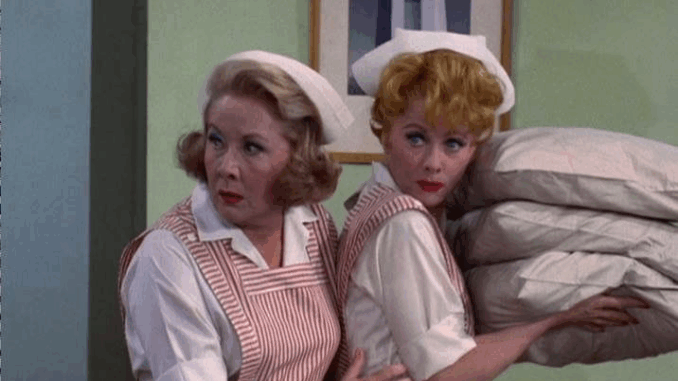
When audiences tuned into I Love Lucy, they saw a perfect blend of comedy and charm. But few realized the emotional and professional battles being waged just off camera.
🧨 A Tense Creative Partnership
While Lucille Ball was known as the queen of comedy, she also ran a tight ship. Behind her glowing smile was a business-savvy, detail-obsessed actress who demanded excellence. Some insiders described the environment on set as tense, especially during later seasons.
Desi Arnaz, who served as both co-star and executive producer, had growing friction with Ball over creative control. Lucille often wanted more character-driven comedy, while Desi focused on punchier, gag-heavy writing. These disagreements spilled over into their marriage and, by the final seasons, were said to be affecting their performances.
🥂 Fred & Ethel: Off-Screen Enemies?
One of the most surprising dramas involved William Frawley (Fred Mertz) and Vivian Vance (Ethel Mertz). Despite their onscreen chemistry as the lovable landlords, they disliked each other intensely off set.
Vance reportedly resented being paired with the much older Frawley, while he openly mocked her weight and age. Their bickering was so intense that producers had to separate them during downtime to prevent arguments.
Ironically, the tension may have fueled their performances — the biting sarcasm and exasperated looks became fan favorites.
📉 A Show That Could’ve Crashed
The pressures of fame, long production hours, and personal conflict nearly brought I Love Lucy to an early end more than once. Rumors of backstage blow-ups, cast walkouts, and behind-the-scenes rewrites were frequent.
But the professionalism of Ball and Arnaz — despite their crumbling marriage — kept the show running until 1957, with spin-offs continuing afterward.
🏆 The Enduring Impact
Despite all the drama, I Love Lucy helped shape modern sitcoms. Its innovations in production, timing, and character development set the bar for generations of comedies to follow.
“You’d never guess how much tension was behind those laughs,” said a former CBS producer. “But maybe that’s what made the comedy feel so real — it came from a place of struggle.”
In the end, I Love Lucy isn’t just a story about laughter. It’s a story about two people who built an empire — and nearly lost themselves in the process.
